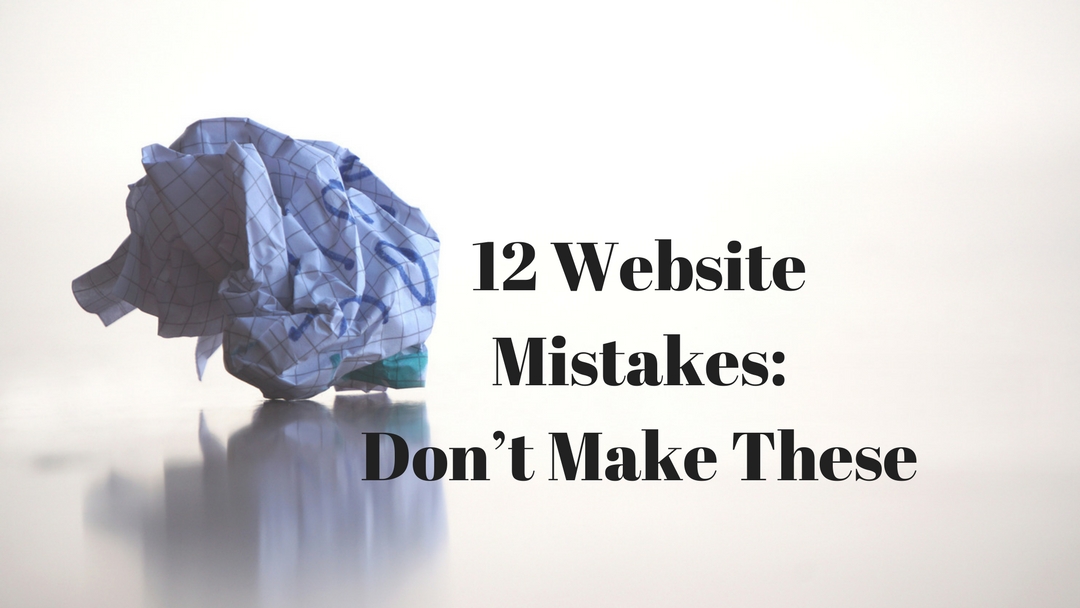This article is for financial advisors who want to be better at marketing.
If you can relate to any of these WEBSITE DON’Ts, I’m hoping they inspire you to reflect on why you have a website and what you hope it will accomplish for your practice.
1 – Use Others Peoples Content
How will your ideal audience understand what you stand for and do? They won’t get to experience you when you use someone else’s content. And other people’s content typically doesn’t speak to a specific audience, specifically your audience. This is a fail tactic if I’ve ever seen one. If you want to swim in the sea of sameness…
2 – No Real Or Clear Point Of Difference
When someone visits your site it had better resonate. It’s needs a clearly articulated difference that sounds better and more relevant to your ideal visitor. If they aren’t intrigued, they’ll leave your site fast. This is the greatest foe of getting quality referrals too, it doesn’t just push away potential prospects, it underwhelms client and COIs who you need to refer to grow and sustain your practice.
3 – Calculators
Unless you have a very specific financial calculator for a very specific audience and reason, they are completely useless. Website manufacturers used to sell these as “cool” add-ons. Advisors typically bought hook, line and sinker. Shouldn’t you be their financial calculator!
4 – Drop Down Menus
Most people don’t want to feel like they have to read a book to understand who you are, why you are different and what that means to them. Keep it simple Sherlock. Less is almost always more when it comes to website copy. Say something compelling then stop talking.
5 – Use Other Company’s Videos To Sell Your Company
I can’t tell you how many eMoney videos I’ve seen on advisors’ websites. It’s not a differentiator when everyone else has the same video. I love eMoney – they are incredible, but find a unique value proposition. It’s still a good idea to use their videos, but use them in context. If you’re discussing the value of consolidated financial reporting, insert their video for full impact.
6 – Keep Great Ideas For Inside Pages
You should put your best and most compelling ideas on your home page. Long home pages are effective because a visitor gets a good summary or snapshot of whether you’re worth investing the next 5-15 minutes of their time. If you hide your ideas you may not gain their interest.
7 – Explain That You Do Many Services But Not One Core
It’s good to let visitors know how deep your expertise is but doing so at the expense of a core offering or focus is not good marketing. The best businesses find a simple way to promote their best features and services. Focus on that ONE core area and the rest will fall in place. Claim a focus and build value and confidence in that.
8 – Use Stock Photos Of A Retired Couple On A Beach
Seriously, a photo does not make your brand or your website. A much preferred photo option is a backdrop photo. A backdrop photo is one that focuses on an object with a blurred out background or a simple texture/horizon that doesn’t grab the visitors specific attention yet paints a nice atmosphere for your brand style.
A few ideas might be: landscape, your logo on a coffee mug on a table with a blurred out background, your logo on a money jar on an organized shelf with other simple “client friendly” items (mugs, mugs with pens, drinking glasses, and other entertainment supplies) when they arrive for a visit, shell on a beach (but no retired people), a harvest table surface, a blurred wall, a brick wall, a horse in a field, or a blackboard with a written note.
9 – Have More Than 5 Pages
Large navigation menus take away whitespace, aren’t mobile friendly and they scare website visitors away. There’s no reason you need to tell your message with more pages than this.
Try this formula for your website navigation. Answer these questions and you’re site is complete.
-
-
- What We Do (what’s your core expertise and what are the benefits)
- How We Help (your approach or process – a diagram works well here)
- Who We Help (a simple description of who you help most and why)
- Why We Do It (your passion and purpose count)
-
10 – Use Small Fonts No One Can Read
Seriously, who wants to read this small font.
11 – Be Desktop Friendly But Not Mobile Friendly
If your website isn’t optimized for mobile it’s basically useless to half of the people viewing it. Many website providers get this but it’s always a good idea to test your site on multiple devices. There are tools to help you test this: BrowserStack and Litmus.
12 – Have Too Few Or Too Many Colors
A website palette should consist of three primary colors and one or two background colors.
Primary 1 – main color in logo
Primary 2 – secondary color in logo
Contrast 1 – high contrast color for action requests
Background 1 – simple color to balance first three colors
Background 2 – simple color to balance first three colors





